18 - 48 Months+
Peaceful Parenting: Dealing with Tantrums

“Look at it as living with your own little guru, and you get a growth course in how to stay calm in the face of a barrage of big emotions.”
Dr. Laura Markham, Psychologist, author and parent coach
Finding calm and connection when your kid is elevated can feel like a tall order. But connecting with your child is actually the best thing you can do to help de-escalate the situation. Psychologist, author and parent coach Dr. Laura Markham joins host Jessica Rolph to discuss the most effective ways to respond to our children when we’re triggered.
In her work as a coach with thousands of parents all over the world, Dr. Laura describes her approach as “peaceful parenting”. Who doesn’t want more of that? Tune in to learn why responding to tantrums with empathy can be a game changer.
Dr. Laura is the author ofPeaceful Parent, Happy Kids: How To Stop Yelling and Start Connecting, Peaceful Parent, Happy Siblings: How To Stop the Fighting and Raise Friends for Life, and now her latest book, The Peaceful Parent, Happy Kids Workbook: Using mindfulness and connection to raise resilient, joyful children and rediscover your love of parenting.
Key Takeaways:
[1:35] How to be a peaceful parent during tantrums.
[4:32] Teach your toddler that big feelings are not dangerous; show them they are safe.
[5:45] How to let go of your concerns about being judged by others when your child is having a tantrum.
[8:25] What does a peaceful parent do when a toddler hits?
[12:12] When your child gets aggressive, demonstrate how to express feelings in a more acceptable way.
[12:47] Dr. Laura explains why rough housing leads to the release of oxytocin.
[14:46] Best practices for sharing peaceful parenting concepts with a spouse or other caregiver.
[17:27] Why empathy is a cornerstone for peaceful parenting.
[19:10] Why it’s important to acknowledge your child’s behavior as developmentally normal and realize this too shall pass.
[20:11] Jessica revisits the highlights of her conversation with Dr. Laura.
Mentioned in this episode:
Learn more about Dr. Laura at AhaParenting.com
Script:
How Would a Peaceful Parent Handle a Toddler Melt Down?
Jessica: So Dr. Laura, tell me about what it’s like to be a peaceful parent through a really big emotional moment for your toddler. Let’s say that you’ve reasoned with them as best you can, you’ve reflected their feelings, you’ve gotten down on the floor with them, you’ve tuned in, but they’re just really having a moment. What does that look like? What do you do?
Laura: Well, what it looks like is it’s loud and it’s hard for them, and we don’t have to have it be hard for us, but most of us, it feels hard because we don’t want our child to be having a hard time, and also it pushes our buttons. We think, “Oh, if I were a better parent, this wouldn’t be happening.” But, you know, that’s not true. Children are wired so that when something is too much for them, too big for them, they let out that stress by crying, in fact, by raging if necessary. And so when your toddler’s having a moment, that’s what they need to do. It doesn’t mean there’s anything wrong with them, and it doesn’t mean they’re going to do this when they’re eight, and it doesn’t mean there’s anything wrong with you. It means they need some support from you, because they’re overwhelmed. So, what it looks like for a peaceful parent is, but it looks like for any parent is, “My toddler is having this total tantrum meltdown.” And what a peaceful parent would say is, “Okay, breathe. I don’t have to draw any conclusions about this, about myself, about my child. I just have to be here to support my child because he’s overwhelmed at the moment. And so if your child will let you, which they often won’t, you could put your arms around them and say, “Oh, sweetheart, you’re having such a hard time. I’m right here.” And hold your child. And they would go.
And you hold them and you say, “It’s really going to be okay, I’m right here sweety. You are so disappointed. This isn’t what you wanted, you didn’t want to have to get back in the car again,” or whatever they’re upset about. If they won’t let you hold them, that’s okay too. You say the same thing, “You are so mad and sad.” And your toddler doesn’t really know what those words mean, maybe, but when they hear that, you say, “You are so mad.” Your toddler is like, “Yeah, mad, that’s what I am, mad.” Now, the truth is, The logical part of their brain is overwhelmed at the moment, right? They are not actually in touch with that part of themselves, they’re only in touch with that big storm of feelings that’s flooding them. But if you say soothingly, “Oh sweetheart, it’s so hard,” and then you would close your mouth and your toddler would howl, And then you would say, “I’m right here with the hug. Would you like a hug?” And your toddler would scream “No!” at you and you would say, “I’m right here.”
And then eventually your toddler hurls themselves into your arms and sobs their heart out and you say, “I know. Sometimes it’s so hard, isn’t it?” That’s how you tell your child that the feelings are not dangerous. It’s really okay, they’re not a bad person to feel these things. And what ends up happening is over time, the toddler learns, “You know these feelings of anger and sadness, I can actually handle them without falling apart.” They don’t have to stuff the feelings. When we tell children, “Stop that right now, don’t you cry about that.” Or “Don’t you use that tone of voice with me.” When we tell them not to have the feelings, they have to stuff the feelings ’cause they don’t want to disappoint us. But when you stuff feelings, they don’t stay stuffed, so they’re out of your conscious control at that point. No longer under conscious control, so they burst out and your child actually ends up with more tantrums. Whereas, when you accept the emotions, the child gradually learns, “It’s not an emergency. My parents really don’t think it’s an emergency. They stay calm, they help me through it, I have back up, I can manage these feelings.” And the child becomes more emotionally intelligent at an earlier age because of the support you’ve given them.
How Would a Peaceful Parent Handle a Public Temper Tantrum?
Jessica: Yeah and that’s huge. But I think that there’s that shame that you feel in front of other peoples, like, how do you really let go of that feeling of being embarrassed and feeling a little bit judged?
Let Go of Shame
Laura: Well, parenting is not what your child does, it’s how you respond. So shame is fear that other people will judge us and find us lacking and we’re not good enough, right? So let’s look at that shame right now. If someone feels shame because their toddler is having a fit because of X, whatever the reason for the toddler, and there are people watching. What do we imagine those people are thinking? You’re not a good enough mom, your toddler… “There must be something wrong with that toddler, my children didn’t do such things.” So we need a way in that moment to calm ourselves down and confront that voice, which is telling us there’s something wrong with us or wrong with our child.
Listen To Your Child’s Cues
And it might be at that moment that your kid hits you and that actually if you thought about it, you’d realize, “Oh, I’ve been focusing everywhere but on my child.” Or, “I’ve been ignoring my child’s cues that they were getting ready to fall apart, and I’ve been sort of pushing it by staying at this event with other people,” or whatever you’re doing. So it’s true that you could do something differently maybe to not have your child do this thing. But sometimes you couldn’t have done anything different. Maybe your child is just tired and you didn’t realize how tired she was, she’s not usually that tired right now, she’s coming down with something, whatever. And so I think you just have to, regardless of the situation, say to yourself, “I’m a good enough mom, I’m doing the best I can, I don’t have to be perfect, I’m more than enough, my child is going to be fine.”
Prioritize Your Child’s Needs Over Public Judgement
And you also have to ask yourself this question, “Where do my loyalties lie? Is it more important how I appear to other adults, or is my priority here, my relationship with this little human being who has been entrusted to me, who I’m supposed to nurture and support. And when she acts like she doesn’t deserve my love is when she needs it the most to help her with whatever is driving her to act out this way. Where does my loyalty lie?”
What Does a Peaceful Parent Do When a Child Hits You?
Jessica: I love that. I really love that. I think I need to put some of your quotes on my bathroom mirror. I love it. So, okay, let’s lean in just a tiny bit more. So what does it look like if your toddler hits you? I remember so vividly, my little boy just slapping me in the face. What does a peaceful parent do in that moment?
Step Back
Laura: Oh, that’s so awful. Right. So the first thing you do, because we’re not repressing our emotions either, right. We’re noticing them, but not acting on them. So the first thing you do is you step back, and of course, what happens when somebody hits us is we want to hit back. Some part of you is going to want to shake your child or in some other way respond, and we feel this great sense of urgency to do that. That’s because we’re in fight, flight or freeze, so we have adrenaline pumping through our veins, so we feel that urgency. So I would say, take a breath, step back, take a breath, and then say to yourself. It’s okay, I can handle this. He’s a toddler, he’s acting like a toddler because he is a toddler.”
Be Gentle, but Firm
And there’s nothing wrong with raising your voice. If your toddler hits you in the face, you say, “No, no, no hitting, ouch!” But not ouch like, “Oh, two-year-old, you have lots of power over me.”
That’s like handing your child a remote control that they’re going to really want to use. No, More like, “Absolutely not. You don’t ride on the top of the car. You get in your car seating, you buckle up. You don’t eat dinner on top of the table or the counter. No, you sit in your chair. And you don’t hit me.” There are certain things we don’t do. And we just absolutely say, “No, no hitting! Ouch, that hurts!” And so we’ve made that really clear, and then we say, “You are so mad. You’re mad, right?” So tell me, when your toddler hit you in the face, do you remember what he was mad about?
Jessica: You know, I don’t. I just remember the feeling that I had inside of me, and I remember kind of gripping his arm and being kind of worried about the anger that I felt.
Contain and Nurture Yourself
Laura: Because it’s completely normal when someone smacks us in the face, we want to smack them back. Gripping his arm is the least of it. We feel rage, right? When we are hurt, we feel rage. That’s why human beings are still here, we’ve responded by protecting ourselves. We’re in fight or flight, but our child is not the enemy, never. And if you turn around and smack him back, you’re teaching him that that’s what we do with feelings that are upset. What we want to show him is there’s a better way to handle it. He’s two, we’re not. We’re going to handle it better. So you might actually step further back so you can keep your hands off your child.
What I tell parents to do is, when you feel that rage, clap your arms around your body. Take a breath. Give yourself a big hug. That containment, first of all, you can’t use your hands to hurt your child. But also, that containment makes us feel safer, settles down the nervous system, because remember, it was about to go haywire, or it was going haywire when your kid hits you.
So when your toddler hits you. Containment, nurturing yourself, talk yourself off the cliff. “He’s acting like a toddler because he is a toddler. I can handle this, I’m the grown-up, I’m the role model.”
Coach Your Kid To Identify Emotions
Laura: Take another breath, and then you say to your child, once you’ve said the no hitting, you say, “You are so mad. You’re showing me you’re mad, right? No hitting. And then if your toddler has any words at all, you can say, “Say, ‘mad, mad mommy’, and I will hear you. Say it, ‘mad’. And you’re coaching them to express the feeling in a more acceptable way. So it’s important to remember, kids are going to get mad. All humans get angry. What we want is for them to handle it responsibly. And that starts with being able to put it in words so they don’t have to act on it.
Reflect on How You Have Attended To Your Child and Make Adjustments
Laura: I guess I would just ask, after something like that happens with your toddler, ask yourself, “Did I give my toddler the support that they would have benefited from prior to that moment? So had I spent the last 40 minutes before we tried to leave the house running around getting my makeup on and trying to pack up the stuff we needed and returned that phone call really quickly and pour another cup of coffee so I could have it for the road or whatever.” If you were doing all that, you weren’t attending to your toddler. That’s fine, we can’t attend to them every minute. But then you need to build in 10 minutes at the end to connect with the toddler, transition them away from whatever they’ve been doing and building a little extra time to transition them into leaving the house in the time frame that you want. Because so often what ends up happening is we forget that they need our support in order to make these transitions, and then of course, they lose it during the transition, but we didn’t set them up for success.
And I would take it a step further and say, every child needs certain things every day. They need that deep intimacy with us, where we connect with them deeply, they need laughter. They need us to chase them around the house and swing them into the air and dump them on the couch. I call that rough housing. Not my word, it came from Larry Cohen who wrote Playful Parenting. But that laughter is essential to every child, and when you’re laughing with your child, you’re both releasing oxytocin into your bloodstream. That’s the bonding hormone, remember. So your child is more likely to be able to cooperate with you then when you’re needing them too, when you’re leaving the house or something else that you need their cooperation. So it’s true, they always fall apart when we can’t listen. But if we build into the routine, things that do meet their needs, I call it preventive maintenance, then they’re more able to rise to the occasion when we ask it of them.
How Do We Navigate Becoming Peaceful Parents and Caregivers?
Jessica: I love all of this, and I think that part of our work as parents is to also get on the same page with the other caregivers with our child’s daycare, with our partners. How do we navigate the learning and growth that we’re going through to become a peaceful parent and then also share that with a spouse or another caregiver?
Engage in Open Discussion
Laura: I think it’s constant or at least ongoing discussion. There’s never going to be just one conversation about such an important topic, right? So when you learn something exciting or inspiring, or even something that you think, “Oh wow, I wish I’d known this six months ago,” you can share that with your partner and ask what they think of it. And ideally, you have these conversations before you ever have your first child. Before you decide to have a baby with someone, you start to have conversations about, “What would you think about how we would raise this child? But now that you have a real-life toddler, you have ample opportunities all day every day to have those conversations with your partner and say, “I noticed that when we are able to slow down and really connect with them ” or to your partner, you might say, “I notice that the mornings when you spend time tossing them around and you two laugh so much together, he’s so much more affectionate with you and he’s so much more cooperative. And the mornings when you don’t have time to do that, he’s always more difficult.” You might just notice things like that.
Comfort Your Child Without the Fear of Dependency
Laura: I’ve heard partners say things like, “Well, I don’t want him to be a mama’s boy and dependent. I want them to stand on his own two feet, so when he cries, I want him to pick himself up. I don’t think you should be hugging him.” As an example. But actually the research shows that that just makes kids defend themselves more, get defensive if they feel like no one’s there as their backup comforting them when they’re upset. Whereas when we comfort them, they get that need met, and they’re able to move on developmentally to the next thing, and they have a more integral form of strength rather than defensiveness. But how would your partner know that? They’re just going based on how they were raised maybe. So those kinds of things take conversation and you might listen to an audio together and talk about what you heard and what you think about it.
Jessica: This is really helpful. So I heard you talk about these main ingredients for being a peaceful parent, it’s making time for connections, for intimacy. Making time for connection through laughter, which releases oxytocin, but when you both do. What else? Is there anything else that’s sort of like the kind of tenants of the philosophy that you’re sharing with us today?
Empathize With Your Child 24/7
Jessica: I feel so inspired to go home to my three tonight, bringing this fresh kind of re-invigorated perspective on the importance of these… Of connection, on 24/7 empathy, I love that goal, and on laughter. We’re speaking to parents of toddlers. What else have I not covered that you wish that you could tell them?
Laura: Whatever your toddler is doing, it’s normal, it’s natural, it doesn’t mean they’re going to be doing it in four years. This is what toddlers do, they drive you crazy. They want what they want, they don’t have much prefrontal cortex or executive function, it’s okay. Just be as loving and warm as you can with them and stay as calm as you can bring yourself to. Look at it as living with your own little guru and you get a growth course in how to stay calm in the face of a barrage of big emotions, and you’ll be amazed at how much more reasonable your child will be really in just a year or two.
Jessica: Dr. Laura, that’s just what we needed to hear. Thank you so much for being with us today. It’s been such a pleasure.
Laura: Enjoy your children and for everybody who has a toddler, it’s a wonderful age. I know it’s a crazy-making age, but “Look at that brain exploding, that language exploding, those physical skills, exploding.” Just enjoy your child.
Jessica: Thank you so much for being with us today, Dr. Laura. It’s been such a pleasure.
Laura: It’s been my pleasure. Thank you.
3 Episode Takeaways for Parents
I mean, what parent doesn’t want more calm in their routine?
1. Tune Into Your Child’s Cues
When you can accept your child’s emotions without reacting, your child learns: “It’s not an emergency. My parents don’t think it’s an emergency. They stay calm; they help me through it; I have back up; I can manage these feelings.”
2. Prioritize Your Child’s Needs, Not External Judgement
When your toddler’s behavior embarrasses you in public, ask yourself: Where do my priorities lie? Is it with the strangers around me or this precious little person who is entrusted to me? Dr. Laura encourages us not to worry about others’ judgement, and focus instead on how we can nurture the relationship with our child.
3. Open the Discussion With Your Partner and Caregivers
If you are co-parenting, when you discover a new strategy, share it. You might say, “I notice the mornings when you take time to toss him around and laugh together, he’s so much more cooperative.” Make it a regular check-in.
You can find more parenting tools on the Lovevery blog at lovevery.com.
Posted in: 18 - 48 Months+, Parenting Philosophy, Social Emotional, Empathy, Child Development, Behavior, Parenting
Keep reading

18 - 48 Months+
0 - 12 Months
Lovevery’s Disability Support Service offers personalized guidance
Lovevery’s mission is right in our name—we love every baby and child. Today I’m so proud to say that we’re further realizing that mission, by better serving more families. As you know, our Play Kits are staged by a child’s age. This works for many families, but I know firsthand that it’s not ideal for … Continued

12 - 48 Months
18 - 48 Months+
0 - 12 Months
8 ways to celebrate Earth Day as a family
Earth Day is a time to celebrate nature and the environment. Teach your children how to take care of the Earth with these fun activities, crafts, and books.
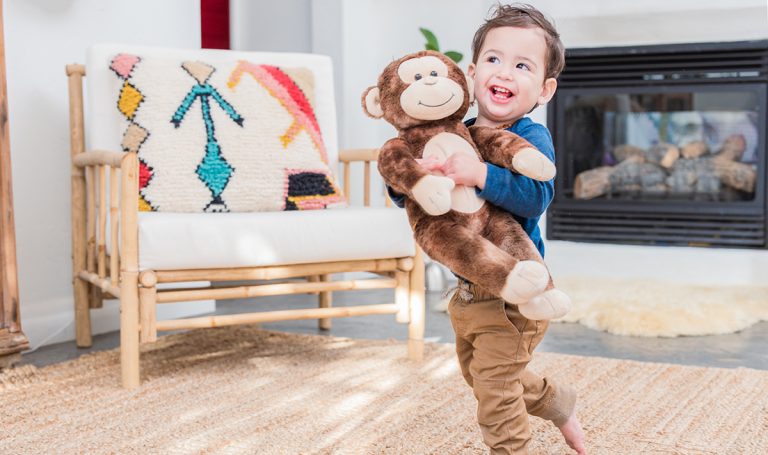
11 - 12 Months
13 - 15 Months
16 - 18 Months
18 - 48 Months+
Why children are so attached to their loveys (and what to do if your child loses theirs)
Loveys, also known as "transitional objects," help babies and toddlers through transitions. Learn why these blankies, stuffies, and more are important and what to do if one goes missing.
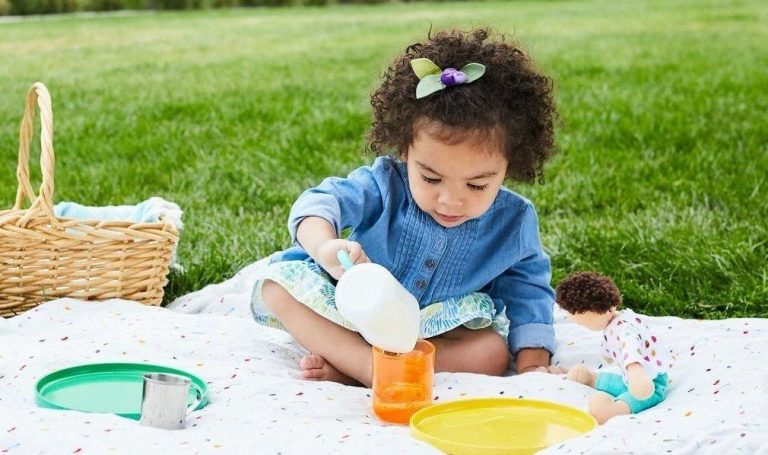
18 - 48 Months+
Pretend Play: Outdoor Picnics
Pretend play is a great way for your child to apply their current skills and use them for different purposes.
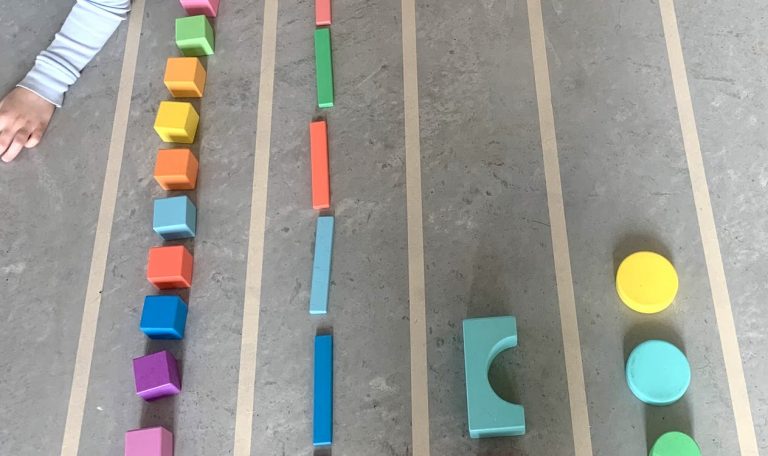
18 - 48 Months+
Making graphs with toys
Painter's tape and small toys can turn into a great pre-math activity for young kids who love to sort and compare.
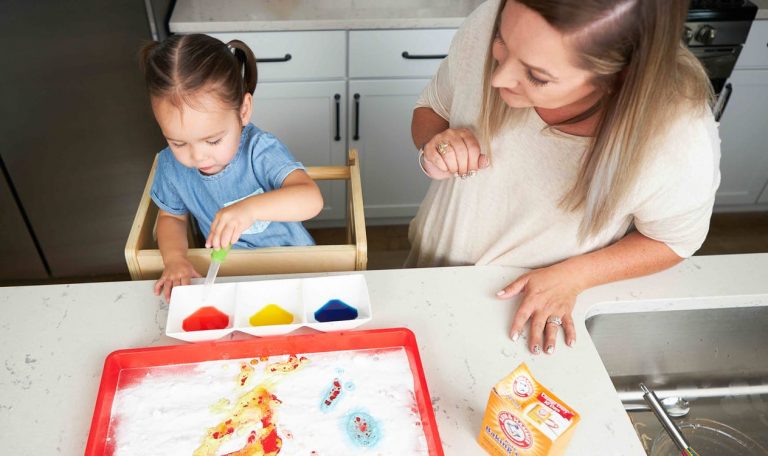
18 - 48 Months+
4 easy water dropper activities
Eye droppers are great for fine motor practice, precision, and focus, and can make an activity feel fresh and new.

18 - 48 Months+
Dot sticker play
Your child gets to work on their fine motor skills when your introduce versatile dot stickers.

18 - 48 Months+
Cracking eggs with your child
Cracking eggs takes a bit of training, but it's a great Montessori practical life activity you can begin around 3-years old.
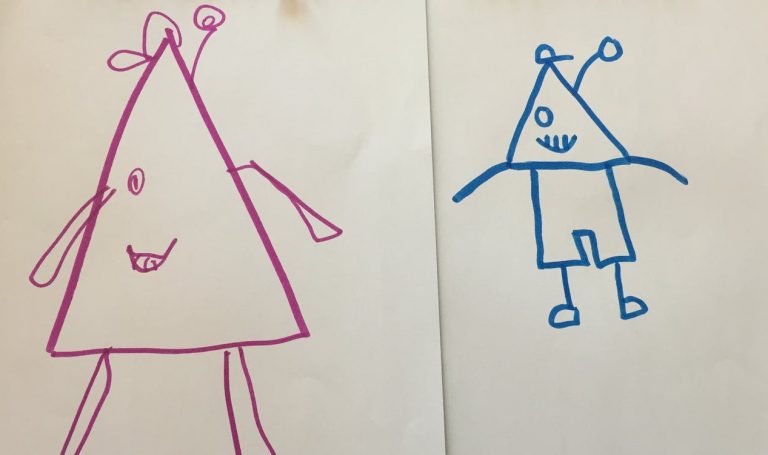
18 - 48 Months+
Copy that monster
This game is not only good for precise drawing practice, it's also an exercise in in using descriptive words.

18 - 48 Months+
3 fun ways to get the wiggles out
Kids need to run, jump, exercise, and work out the wiggles regularly. Try these 3 simple ways to get moving.
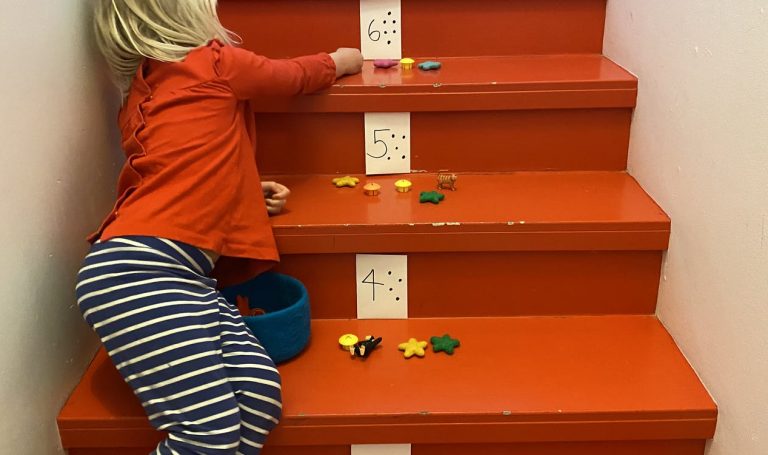
18 - 48 Months+
Stairway math
This activity gets the wiggles out while giving your child an opportunity to practice counting and identifying numbers.

18 - 48 Months+
Fine motor threading activity
This activity is a great way for your child to strenghen fine motor skills needed for precision in their grasp, manipulation, and release.
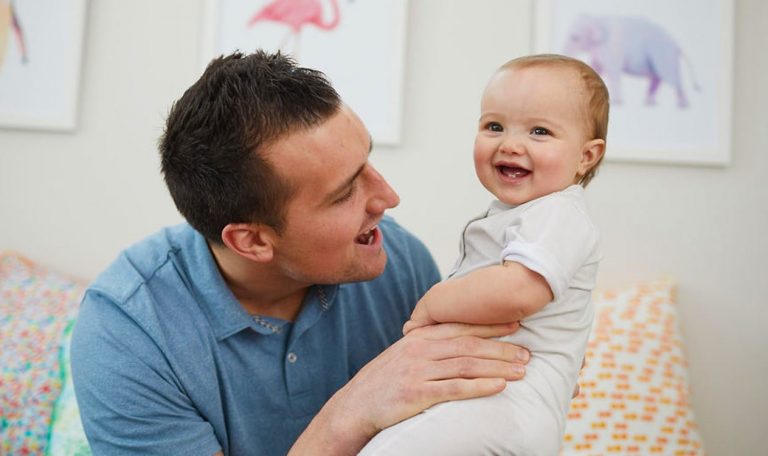
18 - 48 Months+
7 Best Quotes About Parenthood
Here is a collection of Lovevery's favorite quotes to inspire and support you.

18 - 48 Months+
Cognitive and Emotional Benefits of Bath Time
Bathtime has many cognitive and emotional benefits beyond simply keeping your baby clean. Here's how you can help your baby get the most out of bathtime.
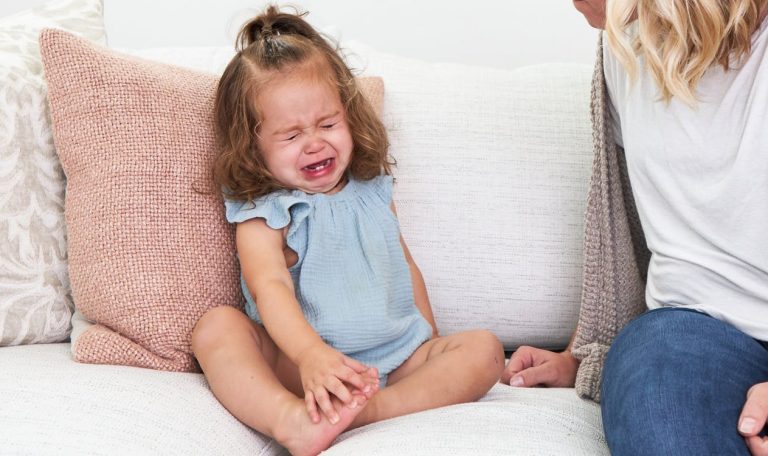
18 - 48 Months+
Toddlers and Their BIG Emotions
From the moment they're born, children need reassurances that a range of feelings is normal, and that emotions come and go.

28 - 30 Months
18 - 48 Months+
This classic “toy” unlocks so much development
Why are blocks so foundational to childhood? Block play supports language development, STEM concepts, visual spatial skills, and more.

18 - 48 Months+
How Eye Contact Affects Your Baby’s Brain Development
A study showed that babies' brains synch with their parents’ when they learn about their social environment. Read about how eye contact plays a crucial role in developing emotional connections.
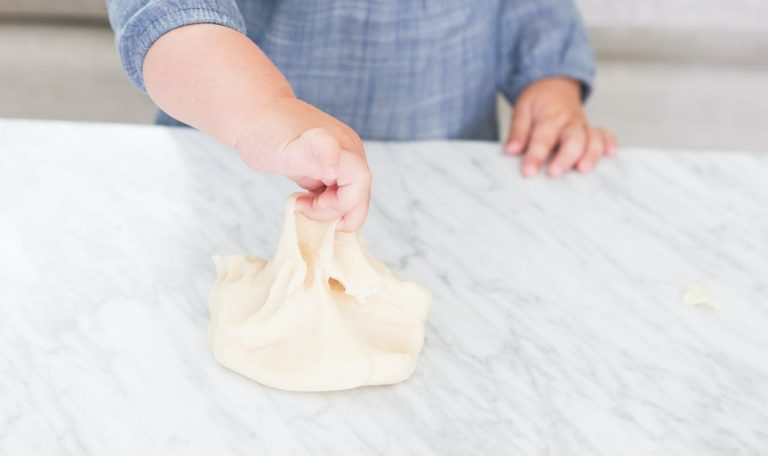
18 - 48 Months+
The Perfect Play Dough Recipe
Playdough is not only a fun and creative activity for kids, it also helps develop motor skills and finger strength. Follow our favorite homemade recipe.
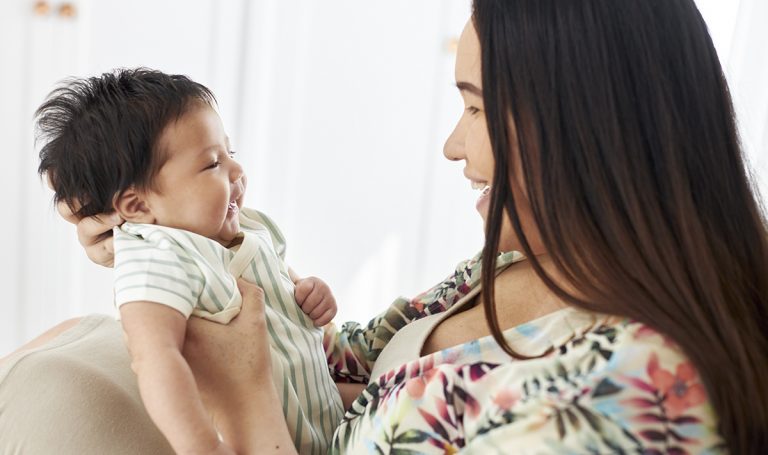
18 - 48 Months+
The Huge Impact Singing Has on Your Baby’s Brain
Experts have found that singing lowers your baby's heart rate, descreases anxiety, and releases endorphins.

18 - 48 Months+
When are children ready to share?
Learn the differences between turn-taking and sharing, and when children are ready for each.
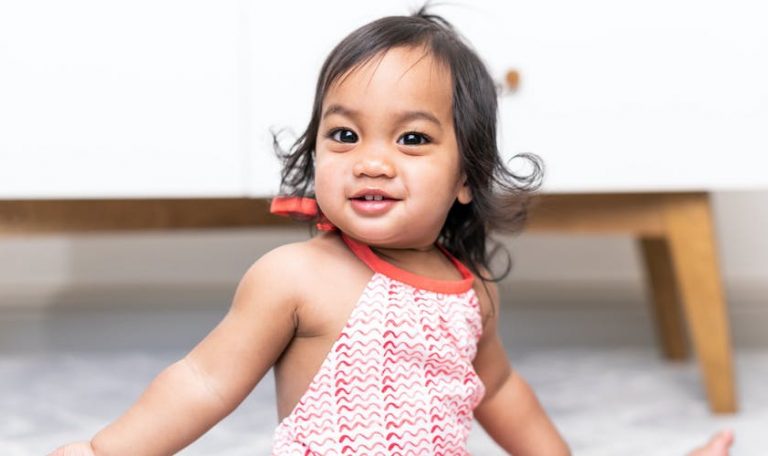
18 - 48 Months+
5 facts about toddlers to help you better understand yours
Your toddler is growing every day—physically, mentally, and emotionally. We gathered together five key facts to help you better understand your toddler and what's happening with their development right now.
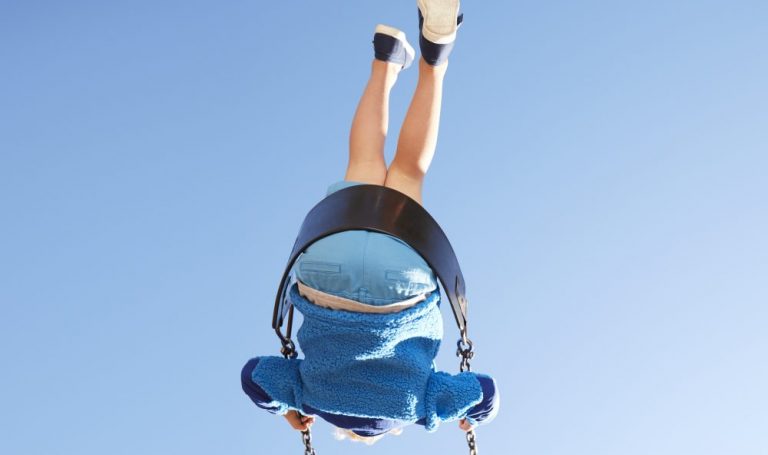
18 - 48 Months+
Why do children love feeling dizzy?
Spinning around and the resulting dizziness are significant tools children use to learn about their bodies. Learn more in our blog post.
